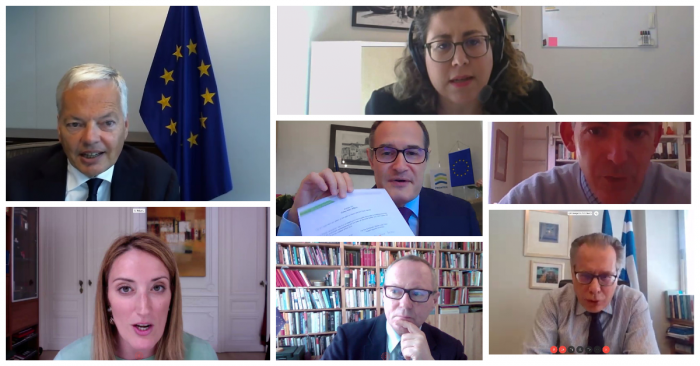Article – Schengen key to recovery: interview with civil liberties committee chair

When will the internal borders in the Schengen zone reopen?
They should reopen as soon as possible, that’s my message. But apparently it’s not going to happen in full before early July. Our committee has been reminding member states that they are bound by European law, the Schengen borders code. The law says that all restrictions should be time-framed and that the grounds for suspension should be reasonable and proportional.
Now the important thing is that the [European] Commission oversee the restoration of free movement in a phased timeframe. Interior ministers need to coordinate all extensions of restrictions with the Commission. It is obvious that without Schengen there will be no recovery [from the pandemic]. In my view, without Schengen, there would be no European Union.
Read more on what the EU can do about the reopening of Schengen borders
Does the Schengen zone need better coordination and governance?
There has been a deplorable lack of coordination. Member state governments have not lived up to their obligations, which are binding. They should have communicated before [suspending Schengen] with each other and the Commission so that the latter could ensure the suspensions are time-limited and not discriminatory to some citizens. In the process of restoring the normal functioning of Schegen, we will ensure that these mistakes become lessons learned.
If there is a second wave of infections, what should we do differently in Europe? Is closing borders the best way of preventing the spread of the virus?
Let’s face it, the pandemic took us by surprise. Unprecedented measures were taken. It challenged the liberties that we took for granted for many years. Free movement has been suspended and that’s damaging. But, precisely because the situation was unprecedented, we have to show some understanding with the errors of governments in their efforts to secure public health, which is their number one priority.
Watch the full interview, which also delved into Schengen enlargement, migration, asylum and the use of personal data in the fight against Covid-19, on our Facebook page.
Find out more on what the EU is doing to fight the coronavirus



